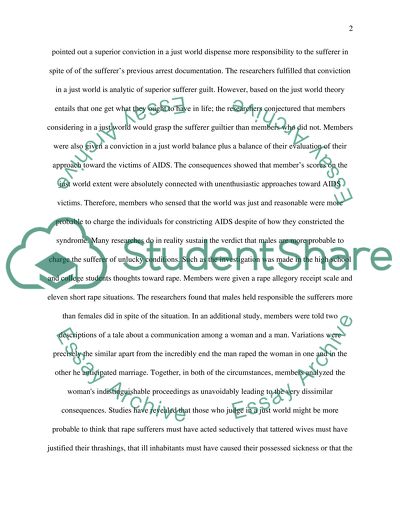Cite this document
(“Just World Theory Essay Example | Topics and Well Written Essays - 2000 words”, n.d.)
Just World Theory Essay Example | Topics and Well Written Essays - 2000 words. Retrieved from https://studentshare.org/philosophy/1533729-just-world-theory
Just World Theory Essay Example | Topics and Well Written Essays - 2000 words. Retrieved from https://studentshare.org/philosophy/1533729-just-world-theory
(Just World Theory Essay Example | Topics and Well Written Essays - 2000 Words)
Just World Theory Essay Example | Topics and Well Written Essays - 2000 Words. https://studentshare.org/philosophy/1533729-just-world-theory.
Just World Theory Essay Example | Topics and Well Written Essays - 2000 Words. https://studentshare.org/philosophy/1533729-just-world-theory.
“Just World Theory Essay Example | Topics and Well Written Essays - 2000 Words”, n.d. https://studentshare.org/philosophy/1533729-just-world-theory.


